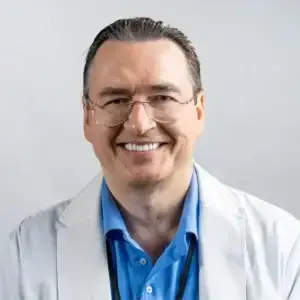

Dr. Rostislav Ignatov, MD
Chief Medical Officer
Drug abuse has a significant impact on both your body and brain. It triggers the urge to use alcohol or drugs. Although it is a persistent mental health condition, prevention programs make recovery possible. But not everyone receives therapy for addiction.
Depending on your needs, various effective ways to prevent drug abuse exist. You can choose evidence-based strategies depending on your level of drug dependency. Examining your drug use can be difficult, but doing so will benefit your mental health.
Taking medicine as directed is a good way to avoid addiction. When you take drugs beyond your prescription, it poses health risks. Without proper care, it may be severe. Get help from your nearest rehab center.
The post will cover the following key points:
While prevention strategies like avoiding temptation and developing coping skills can help reduce the risk of drug abuse, if you’re already struggling with addiction, professional treatment is essential for recovery. Our drug addiction treatment programs begin with medically supervised detox to safely manage withdrawal, followed by inpatient rehabilitation or outpatient programs that teach healthy coping skills and address the underlying causes of addiction. For those with co-occurring mental health conditions like anxiety or depression, we provide integrated dual diagnosis treatment that addresses both mental health and substance use together. Treatment is available at our facilities in Arizona, Arkansas, Florida, Massachusetts, New Jersey, and Puerto Rico. Check your insurance coverage for addiction treatment or review our insurance information to understand your benefits. Contact our admissions team to begin treatment and learn the skills needed to prevent relapse and maintain long-term recovery.
Drug abuse is a disease that affects your brain and behavior. Some common addictive drugs include alcohol, marijuana, and nicotine. If you have an addiction, you might continue to use the drug even though it is dangerous.
Before becoming addicted to drugs, some people are exposed to drugs through social settings. Watching their friends use or abuse drugs may provide a false sense of security, making them feel comfortable with trying the drug.
Drug use feels good. People wouldn’t take them recreationally otherwise. The issue is the brain becomes dependent on the effects of drugs. This means the substance abuse victim is now unable to function without a base level of the addictive substance.
To feel the high that initially attracted them to the drug, they must increase their dosage. Then, they become dependent on this new, higher dose, and the cycle repeats. There are only two outcomes when drug abuse leads to addiction: recovery or death.
The risk and rate of abuse vary depending on the drug type. Some drugs have a higher rate and risk of addiction than others.
Whether it’s cocaine, alcohol, or prescription drugs, any drug can exacerbate mental health issues. It doesn’t even have to be daily drug use for it to be a problem.
Drug abuse can be physical or mental, or even both. You may have seen that you need to use it to perform daily life tasks.
Other people may have noticed a shift in your behavior. You may start taking risks with your safety. change is possible for any reason with the correct help.
Drug addiction signs include:
Individuals with drug abuse may have multiple medical issues. These include lung or heart disease, stroke, or other physical problems. Testing results can show how long-term drug usage harms your body. Drug use can make you more likely to get sick from infections.
Admitting you have an issue with addiction is the first step in substance abuse prevention. SUDs impact your brain and lead it to search for ways to continue using drugs. Admitting a problem shows you dare to face your abuse and its causes.
While many options are available, your treatment plan must include a strong support network. If you aren’t ready to ask for help from your friends or family, think about speaking with a doctor or visiting a rehab center.
Medical detox is an early phase of treating drug abuse. It is a safe choice for people who want to stop using drugs. With the help of medical care, you can manage the situation and avoid relapsing. The detox process addresses the physical effects of drug and alcohol abuse.
People can learn practical coping skills. Therapy sessions help nurture better understanding and trust among family members. The first week or two could be tricky as drug-abusing people go through withdrawal. It can have painful bodily effects.
But, a rehab facility offers the tools essential to help you get through it.
Rehab programs typically offer inpatient and outpatient treatment options to meet each person’s needs. Inpatient care provides a structured, immersive environment with 24/7 medical support, allowing individuals to step away from daily stressors and focus entirely on healing. Outpatient care offers greater flexibility, enabling people to continue working or managing personal responsibilities while attending scheduled therapy and support sessions. Together, these levels of care ensure that individuals receive the right balance of supervision, independence, and therapeutic support.
Inpatient care includes staying inside the rehab center. Patients can choose from various plans to fully submit to healing. Medical experts track your condition in rehab centers.
Experts provide an accurate diagnosis and practical course of recovery. As a result, people receive excellent care in inpatient rehab. Inpatient care has several benefits, including 24/7 medical care.
People with substance use disorder receive help managing their issues at an outpatient program. People attending it can keep doing their daily life activities.
They work while following treatment and take part in supervised social activities. Outpatient care has many benefits, such as flexible treatment hours.
Your family’s history of substance use and mental health can help you prevent future disorders and problems.
The best strategy against substance use disorders is abstinence from illegal drugs and alcohol. Some medicines are very addictive, and many users become dependent on them soon after their initial use. It can be simple for some people never to use drugs.
Others, however, may find it hard, mainly those under peer pressure. In these situations, giving up drug use can require a lot of skill and willpower.
When opiate painkillers become addictive, many users switch to heroin because it produces a high and is often cheaper. But, due to the purity and potency of the substance, many people overdose.
Prescription drug abuse is evolving into a preventable problem by creating a health management system, using it only when necessary. It applies whether the user stays on the prescription or switches to illegal drugs.
You can develop healthy and positive relationships by avoiding people or family members who encourage substance abuse. If you are surrounded by people who abuse alcohol or drugs, you are more likely to do the same.
Teens and adults both feel peer pressure regularly. Develop a reliable manner to say no, come up with a strong motive, or make a plan in advance to avoid caving into peer pressure if you want to stay drug-free.
Drug addiction and mental issues may often coexist. You should get professional help from a doctor if you struggle with mental disorders like anxiety or depression. A doctor can teach you coping skills so you may manage your signs without abusing alcohol or drugs.
Look at your family’s history of drug use and mental health problems. Several studies have shown that these issues tend to run in families, but you can avoid them. Your chances of overcoming physical risk factors increase as you become more aware of them.
When something in their lives is lacking or not working, people often turn to drugs and alcohol. You can deal with these issues and lead a healthy life by practicing stress management strategies. Set goals and aspirations for the future.
These will assist you in keeping your focus and in realizing that drug misuse would only prevent you from reaching your goals.
People today feel like they deserve a good break or a reward since they work a lot. But drugs increase life’s stress. Many of us often fail to see this in the heat of the moment. Find other ways to relieve tension and relax to avoid using drugs as a reward.
Start working out, reading a good book, helping the less fortunate, or making something. Anything uplifting and soothing can divert attention from using drugs as a stress reliever.
Many people use drugs to snub their emotions. Learning coping skills is vital to avoiding drug abuse for this reason. Everyone feels sadness, isolation, shame, and other harmful feelings at different times. Feeling these emotions is very typical.
The best way to handle it is learning to process these emotions, which may include talking with someone, writing in a journal, doing exercises, and other social activities.
By making time for rest and personal well-being, people can better manage stress and reduce the temptation to turn to drugs or alcohol. Prioritizing self-care is a simple but powerful step toward living a healthier, substance-free life.
Get answers about your cost / coverage now.
Your information will be kept private
Let’s talk about what’s going on — no judgment. (We’ve been there before ourselves). No one will know you inquired and there is no commitment to call.
24/7 Support
No Commitment
100% Private
There’s no catch. Checking your insurance is simply a way to see what your plan covers — it doesn’t lock you into treatment, notify anyone, or cost you anything. You get answers upfront to decide what makes sense for you.
Protecting your privacy matters! No information or notifications are ever sent to your employer or family — whether you check your insurance online or call. Everything is handled through secure, encrypted systems that meet strict medical privacy laws. You stay in control of your information!
Luckily, most insurance policies cover treatment here. Depending on the healthcare you’ve already had this year, costs could even be zero. Instead of worrying, let’s just find out what your plan covers.
Most likely. We work with major providers like Cigna, Aetna, and United Healthcare, public insurances like Tricare and tribal plans, and even smaller plans like Surest Bind and Harvard Pilgrim. The quickest way to know for sure is to check online or call. It’s a quick, private way to understand what is covered upfront.
Verifying your insurance isn’t a commitment to start treatment — it’s simply a way to see what your options are. Knowing your coverage ahead of time helps you make more informed, confident decisions. It also helps flag a spot, so you’re able to get right in if you ever do decide you’re ready.
You need your policy number to check your specific policy online. If you want general information, just call. You likely have questions beyond insurance anyway. Reaching out now helps you figure out the right fit if or when you’re ready. You don’t have to put off the call until you’re in crisis. Calling is not scary, I promise!